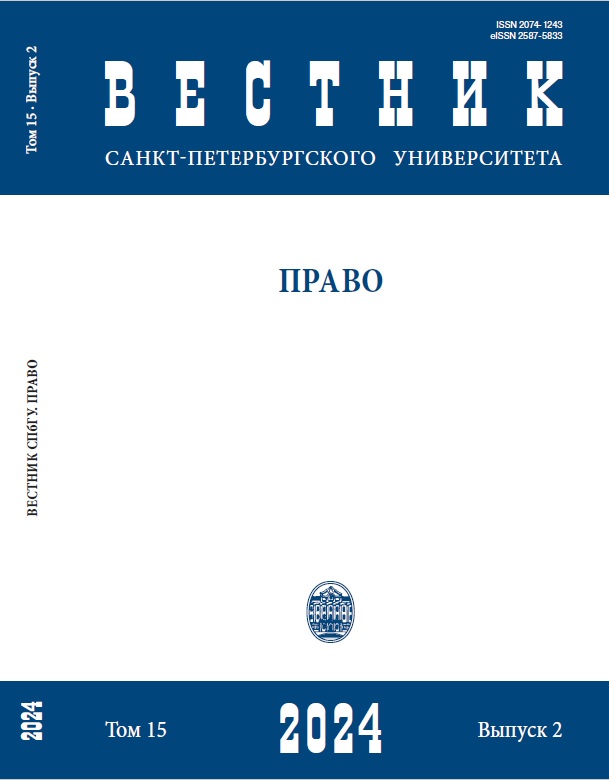Artificial intelligence in law-making and law enforcement: Risks and new opportunities
DOI:
https://doi.org/10.21638/spbu14.2024.214Abstract
The article examines the use of artificial intelligence (AI) in law-making and law enforcement,
analyzing it through the lens of the technological paradigm theory and utilizing a new
methodology rooted in post-classical scientific rationality. The examination of the AI’s legal personality takes into account the modern anthropocentrism standpoint, where humans are perceived as the central figure in the legal system. A human, as a subject of law, plays a crucial role in constructing legal reality. Through exercising his powers, a human transforms abstract norms into existing law. The proposal to delegate this anthropological function to AI
carries significant risks that may have detrimental effects on the established system of legal
regulation for public relations. The correlation between law-making and law enforcement,
as integral components in establishing legal reality, pertains to the legal consciousness of individuals as subjects of law. This correlation does not necessitate the substitution of human decision-making with AI. Simultaneously, AI is capable of effectively handling auxiliary legal tasks. It possesses the necessary skills to draft regulatory acts, court decisions, and consolidate
proposals obtained through law-making crowdsourcing. Additionally, it is proficient in
executing automated actions, such as issuing writs of execution. The utilization of AI to implement the concept of machine-readable law and algorithmize the application of legal norms appears to hold promise. The incorporation of a digital state notion, which pertains to the transition of public service provision into digital format, is also unattainable without AI, which greatly enhances the public administration efficiency. In this case, the focal point will revolve around the matter of attaining effective control over decisions carried out by AI, as well as the prescribed boundaries of its capabilities within the legal domain, as established by legislative measures.
Keywords:
artificial intelligence, law-making, law enforcement, subject of law, legal norm, digitalization, legal consciousness
Downloads
References
Downloads
Published
How to Cite
Issue
Section
License
Articles of "Vestnik of Saint Petersburg University. Law" are open access distributed under the terms of the License Agreement with Saint Petersburg State University, which permits to the authors unrestricted distribution and self-archiving free of charge.






